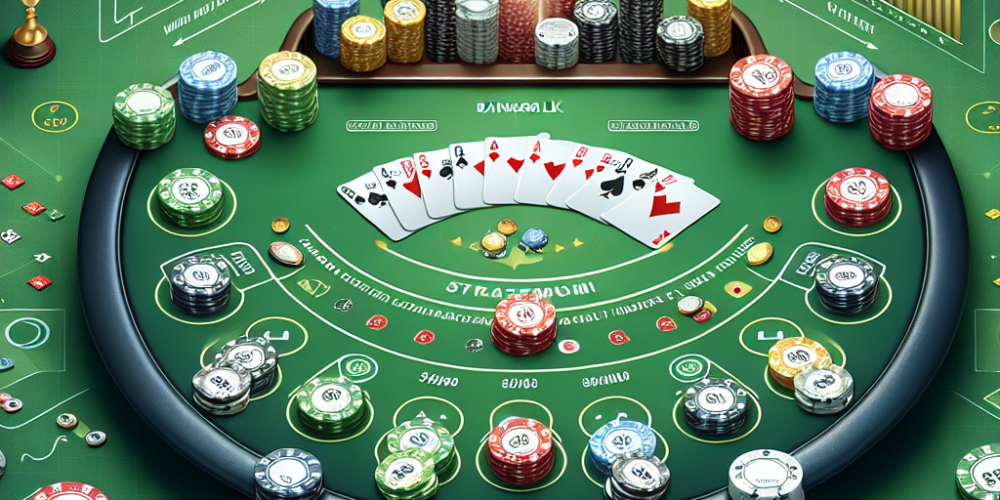Blackjack, often revered as the game of skill in the gambling world, offers players an intriguing blend of luck and strategy. This card game, popular in casinos globally, involves a mix of calculated risk, strategic decision-making, and psychological warfare against the dealer. Through this article, we aim to equip you with proven strategies, advanced gameplay techniques, and essential bankroll management methods to enhance your chances of winning at the blackjack table.
Understanding the Basics of Blackjack
Firstly, understanding the basic rules and objective of blackjack is crucial. The goal is to beat the dealer’s hand without exceeding a total of 21 points. Each card contributes a specific point value to your hand: number cards are worth their face value, face cards (kings, queens, and jacks) are each worth 10, and aces can be either 1 or 11, depending on what favors the hand.
Key Strategies for Blackjack Success
1. Learn Basic Strategy: This is the mathematically optimal way to play each hand of blackjack based on your cards and the dealer’s up card. Basic strategy minimizes the house edge and provides a foundation on which all other strategies build. It dictates when to hit, stand, double down, split, or surrender.
2. Use Card Counting Techniques: While controversial and often misunderstood, card counting is a legitimate strategy that can give you an edge over the casino. It involves tracking the high and low cards dealt and adjusting your bets based on the composition of remaining cards. Simple systems like the Hi-Lo strategy can be a good starting point for beginners.
3. Avoid Insurance Bets: These side bets might seem appealing but generally do not favor the player. The bet is independent of the main game and typically has a high house edge, making it a risky move that can deplete your bankroll.
Techniques to Enhance Gameplay
– Positional Awareness: Your position at the table can affect the amount of information available to you, influencing your game strategy. Position yourself in a spot where you can easily observe the cards that have been dealt and have a clear view of the dealer’s actions.
– Manage Table Dynamics: Being aware of the mood and trends at the table can also provide strategic advantages. Adjust your strategy based on the behavior and skill level of other players and the dealer.
Effective Bankroll Management
– Set a Budget: Before even sitting down at a blackjack table, decide how much money you are willing to risk. Stick to this amount rigidly, regardless of your wins or losses.
– Bet Wisely: Use a betting strategy that aligns with your budget and stick to it. Whether it’s flat betting (betting the same amount each hand) or using a progression system like the Martingale, make sure it is suitable for the length of your gaming session and your overall bankroll.
– Know When to Walk Away: A key part of playing blackjack—or any gambling game—is knowing when to stop. Set a win limit and a loss limit before you begin playing and stick to these limits.
Improving Your Winning Chances
– Practice Regularly: Use online platforms to practice blackjack for free. This is an excellent way to test out strategies without risking real money.
– Stay Disciplined: Emotional play leads to poor decision-making and increased losses. Keep a cool head, follow your strategies, and maintain your playing discipline at all times.
– Learn from Mistakes: Always analyze your game after you finish a session. Identify mistakes and figure out what you could do better next time.
Conclusion
Blackjack, while fun and potentially profitable, requires a combination of knowledge, strategy, and self-control. By employing these strategies and tips, players can not only enjoy the game more but also enhance their chances of leaving the table with a heavier wallet. Remember, gambling should always be done responsibly and within the limits of your financial capabilities. With the right approach, playing blackjack can be an exciting and rewarding experience.

Garry Sputnim is a seasoned journalist and storyteller with over a decade of experience in the trenches of global news. With a keen eye for uncovering stories that resonate, Alex has reported from over 30 countries, bringing light to untold narratives and the human faces behind the headlines. Specializing in investigative journalism, Garry has a knack for technology and social justice issues, weaving compelling narratives that bridge tech and humanity. Outside the newsroom, Garry is an avid rock climber and podcast host, exploring stories of resilience and innovation.


